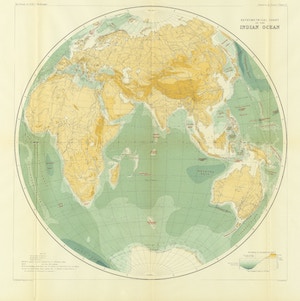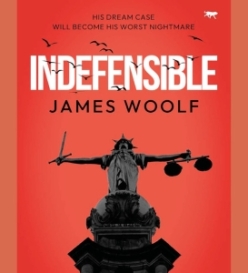Three people, 3 floors one house, oh and one of them is a murderer…Yes its a book, a book explores the issues of Autism.

Despite living in the same three-flat house in a London suburb, neighbours Tam, Nick and Karen are strangers to one another. On the bottom floor, Tam, a recent ex-cop, spends his days drowning his sorrows in whisky; on the middle floor is Nick, a man in his twenties with Asperger’s and a need for strict schedules and routines. The top floor belongs to Karen, a doctor and researcher who has spent her life trying to understand the rising rates of autism. As diagnosis of autism reaches an all time high, The Man on The Middle Floor seeks to explore the way that those on the spectrum are being incorporated in to everyday society and questions the mould of normality that the world attempts to enforce upon them.
Throughout her life, Elizabeth has been a journalist and a writer, a mother of four children and having passed the 50-year milestone, she is keen to show that it is never too late to become an author. Elizabeth has written for numerous publications so we asked her if she could tell us a little more.
How did you come to write your first novel in your 50’s And why?
I have always written, articles and pieces on current affairs, wine and food and while I was living in South Africa I started to write for a local magazine, managing their website and having to write three articles every day. This actually got me into the habit of writing volume and having to come up with ideas and was the ideal place to write, as I found it tricky to live there, and my son was unwell. South Africa is a very unusual society and I was missing London so writing every day was a great way to keep busy, and like anything if you do it regularly, writing became easier as time went by. When I came back to England I applied to do the Faber Write a Novel course and was accepted and the book sprung from there as it was the first time I had been taken seriously as a writer, or indeed taken myself seriously or seen publication as a possibility. I had my first daughter at twenty and 2016 was the first year in my life when I didn’t have a child under eighteen and my mind cleared enough to be able to write a novel and get to the end.
Did you write many book before this one? Things you did say for practice not for publication
I had been thinking of ideas for books since I was very young, I loved English at school and have always wanted to be a writer. I had been writing the same book for a long time, about my childhood, but eventually I decided to write something completely different first so that I had a book out there before I wrote about my family, which was always fraught with lots of layers and blocks. It took a long time to be able to address issues in my childhood without getting bogged down. My second book is part memoir, a thriller with a twist at the end, but it draws a lot on my childhood. I have always written between babies, and children. I am a strange mix of social and solitary and find the writing process cathartic. The Making of a Sociopath, my next book, could only have been written in my 50s, I needed distance and perspective and to be writing from a place of maturity I suppose, not fury.
At what point did you decide to actually sit down and start writing?
I sat down and wrote almost as soon as I started the Faber course. You have to produce a certain number of words per week and it was a great discipline, as was reading them out to the group. Our mentor, Gillian Slovo was a writer whose work I already loved, so it made it believable when she thought what I had written was good.
What was that process like?
The process was painful, for me. I remember Jill Dawson coming in and talking about writing as a light and fun process while on the Faber course. That’s not me, I’m more aligned with Ernest Hemingway when he said ‘There is nothing to writing. All you do is sit down at a typewriter and bleed.’ I anguish about plot, then I anguish about my characters, being exposed on the page, and then as it turns out I anguish about how to get the book to the biggest audience, which publisher to go with and a thousand other things.
Did you procrastinate? and if so how?
I did procrastinate. I need a certain pressure to galvanise me into action, although now that the first book is finished and off to the printers I have breathed out somewhat. I think the self sabotage I tend to employ has waned now that I have a book that is actually coming out and has had some lovely reviews, before I just saw doom ahead and thought no one would like it. While I was writing, I mainly procrastinated by constantly rewriting as I was going along. I rewrote some paragraphs over and over again.
What do you feel approaching writing a novel term in lifer life had to offer in terms of your creative process?
I think coming to a novel in later life allows you to use all those skills you accumulate as a mother and as a wife. I can write really scarifying scenes while my husband is trying to find socks, or my son needs me to run lines with him for drama school, or I need to break off to talk to my daughter. I can multi task really well, and I am also a past master at compromise, something you need when you write a book funnily enough. You need to be able to let go of some of your ideas, put down your anger, be gentle with characters you don’t actually like or admire, and you need to understand people. I think being older you have learned, or I have, that people don’t set out to be evil, nearly everything is circumstances and choice. Funnily enough having a family and being older trains you to put yourself second, and while that makes it difficult to get started or find the time to write, it also makes you a more considered and quiet writer, as you are used to observing and the power of silence.
Did you find yourself lonely and worried, especially because you had bought up four kids and being left to you own devises was it a lonely or frightening journey?
I am a worrier anyway, with people pleasing tendencies, but I think writing the book has really helped with that. as I feel I have done something by myself, for myself. As for being lonely, I am very rarely alone, and although I feel I would like to be, when I decide to strike out on my own for a few days, which is very unusual, I last about twelve hours before I want to come home. Since I was twenty I have literally never felt the urge to leave and go and find myself, I’m so grateful my kids and husband want me around that although I could go away the whole time, I am never happier than with a cup of tea at home with several children and my Labradors. I had a lot of drama in my early life, so I find my comfort in familial happiness. I have had moments when I have found it frightening, mostly though that has been round the publicity side of the book, when I feel personally exposed. The writing was just long but I had a massive sense of achievement in finishing.
What have you learnt from the experience?
I learned that I could start with a blank page and keep going and in the end I learned that persistence even of 500 words a day fitted round running a property business, a house, having four kids and two dogs, paid off. I would recommend anyone to set themselves a word count, even 250 words a day is a 75,000 book in under a year if you stick to it. I have also learned that doing something that is entirely your achievement makes you happier, more settled, and an easier person to be around. It is life enhancing to sit and write just for yourself and it makes the slings and arrows of everyday life sting much less. I stick up for myself more now, and feel I have an identity of my own, which is special. I have also learned that friends you think will be massively supportive might not be, and other friends that you expect to be indifferent are hugely behind you.
The Man on The Middle Floor. Amazon and major bookshops by Elizabeth Moore
Thanks to Louise






